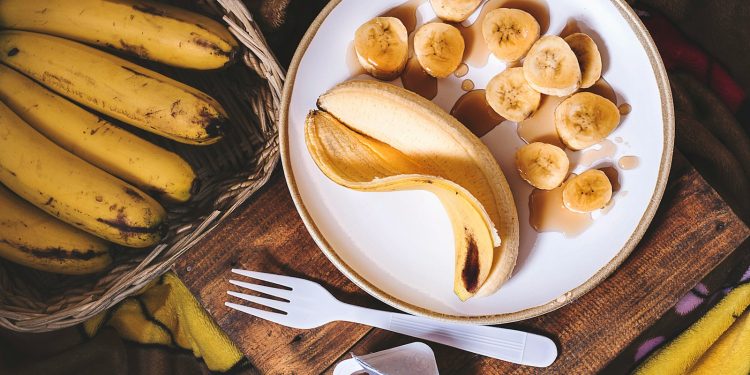Potassium is one of the most important minerals your body needs to function properly, yet it often doesn’t get the attention it deserves. From regulating blood pressure to supporting muscle function and maintaining fluid balance, potassium plays a vital role in many bodily processes. Despite its importance, many people do not consume enough potassium in their daily diet, which can lead to health issues over time. In this guide, we will explore the role of potassium in your diet, the benefits it offers, signs of deficiency, and the best dietary sources to ensure you’re getting enough of this essential nutrient.
Why Potassium Matters
Potassium is an electrolyte, meaning it carries an electrical charge that helps regulate fluid balance, nerve signals, and muscle contractions. It works closely with sodium to maintain a proper balance of fluids in and out of the body’s cells. Potassium is also critical for the function of the heart, kidneys, and other organs, making it a key player in overall health and well-being.
The average adult needs about 2,500 to 3,500 milligrams of potassium per day, but most people fall short of this recommendation. A diet low in potassium, coupled with high sodium intake, can lead to a variety of health problems, including high blood pressure, kidney stones, and an increased risk of stroke. Ensuring you get enough potassium through your diet is essential for maintaining a healthy balance and supporting vital bodily functions.
Benefits of Potassium
- Regulates Blood Pressure
One of the most well-known benefits of potassium is its ability to regulate blood pressure. Potassium helps balance out the effects of sodium, which can cause the body to retain water and increase blood pressure. By helping the body excrete excess sodium through urine, potassium helps reduce blood pressure and supports heart health.
Studies have shown that people who consume diets rich in potassium tend to have lower blood pressure compared to those with low potassium intake. This is why potassium is a key nutrient in dietary approaches to stop hypertension, such as the DASH diet, which emphasizes foods high in potassium, calcium, and magnesium.
- Supports Muscle Function
Potassium is essential for proper muscle function. It plays a crucial role in muscle contractions, including those of the heart, and helps prevent muscle cramps and spasms. When potassium levels are low, muscles may not contract or relax properly, leading to painful cramping or weakness.
Athletes and people who engage in regular physical activity may need more potassium to replace what is lost through sweat. Consuming potassium-rich foods, such as bananas, oranges, and sweet potatoes, can help prevent muscle cramps and ensure proper muscle function during exercise.
- Maintains Fluid and Electrolyte Balance
Potassium works in tandem with sodium to regulate fluid balance in the body. It helps maintain the right amount of fluid inside and outside the cells, which is important for overall hydration and proper cell function. A balance of electrolytes, including potassium, sodium, and chloride, is essential for maintaining fluid homeostasis and preventing dehydration.
When potassium levels are low, the body may struggle to maintain this fluid balance, leading to dehydration or imbalances that can affect the kidneys, heart, and muscles. Drinking plenty of water and consuming foods rich in potassium are key to maintaining proper hydration and electrolyte balance.
- Supports Nervous System Function
Potassium is crucial for the proper functioning of the nervous system. It helps transmit nerve impulses by maintaining the electrical charge across nerve cells. These impulses are responsible for coordinating muscle contractions, reflexes, and other vital functions.
Low potassium levels can interfere with nerve signaling, leading to symptoms like tingling, numbness, or muscle weakness. Maintaining adequate potassium levels is essential for keeping the nervous system functioning optimally and ensuring that the body’s communication pathways remain intact.
- Reduces the Risk of Kidney Stones
Potassium may also help reduce the risk of kidney stones by decreasing the amount of calcium excreted in the urine. When calcium levels are too high in the urine, they can combine with other substances to form kidney stones. Potassium helps regulate calcium levels, which can reduce the risk of stone formation.
Consuming potassium-rich foods like citrus fruits, leafy greens, and legumes can help maintain proper calcium balance and lower the risk of kidney stones. This is especially important for people who are prone to kidney stone formation or have a family history of the condition.
Signs of Potassium Deficiency
Potassium deficiency, also known as hypokalemia, can occur when potassium levels in the blood become too low. This can happen due to poor dietary intake, excessive sweating, dehydration, or the use of certain medications like diuretics. Some common signs and symptoms of potassium deficiency include:
- Muscle Weakness and Cramps: Low potassium levels can lead to muscle weakness, cramping, or spasms, particularly in the legs.
- Fatigue: Potassium is important for energy production, and low levels can lead to feelings of fatigue and low energy.
- Irregular Heartbeat: Potassium is essential for maintaining a regular heartbeat. A deficiency can cause heart palpitations or an irregular heartbeat, which can increase the risk of cardiovascular complications.
- Digestive Issues: Potassium helps regulate muscle contractions in the digestive tract. Low potassium levels can lead to constipation, bloating, or other digestive issues.
- Tingling and Numbness: A lack of potassium can interfere with nerve signaling, leading to sensations of tingling, numbness, or a “pins and needles” feeling, especially in the hands and feet.
Best Dietary Sources of Potassium
Potassium is found in a wide variety of foods, making it relatively easy to meet your daily needs through a balanced diet. Here are some of the best sources of potassium:
- Bananas: Bananas are often associated with potassium, and for good reason. They are a convenient and delicious source of this essential mineral, providing about 400-450 milligrams per medium-sized banana.
- Sweet Potatoes: Sweet potatoes are not only rich in potassium but also provide fiber, vitamin A, and other important nutrients. One medium sweet potato contains about 540 milligrams of potassium.
- Leafy Greens: Spinach, kale, and Swiss chard are excellent sources of potassium, as well as other vitamins and minerals. Including leafy greens in salads, smoothies, or sautés can help boost your potassium intake.
- Avocados: Avocados are not only a good source of healthy fats but also provide a significant amount of potassium. One medium avocado contains about 700 milligrams of potassium, making it a great addition to a balanced diet.
- Beans and Lentils: Legumes, such as black beans, kidney beans, and lentils, are rich in potassium, protein, and fiber. These plant-based proteins are an excellent way to boost potassium intake, especially for vegetarians and vegans.
- Citrus Fruits: Oranges, grapefruits, and their juices are good sources of potassium and vitamin C. A medium orange contains about 240 milligrams of potassium, while a glass of orange juice provides even more.
- Tomatoes: Tomatoes and tomato-based products, such as tomato sauce and juice, are rich in potassium. One cup of tomato juice contains about 550 milligrams of potassium, making it an easy way to add more potassium to your diet.
Tips for Increasing Potassium Intake
If you are concerned about your potassium intake or have been advised to increase it, there are several simple ways to add more potassium-rich foods to your diet:
- Incorporate Fruits and Vegetables: Aim to include a variety of fruits and vegetables in your daily meals. Adding a banana to your breakfast, snacking on an orange, or including a side of sweet potatoes with dinner can help boost your potassium intake.
- Choose Whole Foods: Whole, unprocessed foods are generally higher in potassium compared to processed foods. Opt for fresh fruits, vegetables, legumes, and whole grains to ensure you are getting enough potassium.
- Limit Processed Foods: Processed and packaged foods are often high in sodium and low in potassium. Reducing your intake of processed foods and focusing on whole, nutrient-dense options can help improve your potassium-to-sodium ratio and support overall health.
- Balance Sodium and Potassium: Maintaining a proper balance between sodium and potassium is crucial for overall health. While increasing potassium intake is important, it is equally important to reduce excessive sodium intake by limiting salt and avoiding high-sodium processed foods.
- Consult a Healthcare Professional: If you are concerned about your potassium levels or have a medical condition that affects potassium balance, consult with a healthcare professional. They can provide guidance on dietary changes or recommend supplements if necessary.
Potassium is a vital mineral that plays a crucial role in maintaining overall health, from regulating blood pressure and supporting muscle function to promoting fluid balance and reducing the risk of kidney stones. By including a variety of potassium-rich foods in your diet and being mindful of your overall nutrient intake, you can help ensure that your body gets the potassium it needs to function at its best.















Discussion about this post